Adenophora (with: pearl ginseng, American ginseng)
[Family and medicinal part] This product is the root of the Umbelliferae plant Shanhucai (northern Adenophora) or the Campanulaceae plant Adenophora apricotii and Adenophora rotundifolia (both southern Adenophora).
[Nature and flavor and meridians] Sweet, slightly cold. Enters the lung and stomach meridians.
[Effects] Moisturizes the lungs and relieves coughs, nourishes the stomach and produces body fluids.
[Clinical application] 1. Used for lung deficiency with heat, dry cough with little sputum, or long-term cough and hoarseness.
Adenophora has the function of clearing the lungs and nourishing yin, and benefiting lung qi. It is an important medicine for treating lung deficiency and hot cough, and is often used in combination with Chuanbei, Ophiopogon japonicus, etc.
2. Used for symptoms such as loss of stomach yin, lack of body fluid and thirst.
Adenophora is sweet, cool and soft, and can nourish stomach yin and restore body fluids. Therefore, it can be used for symptoms such as loss of body fluids due to heat disease, red tongue and thirst, and is often used with Ophiopogon japonicus, Rehmannia glutinosa, Dendrobium officinale, etc.
[Prescription name] Adenophora australis, Glehnia littoralis, Glehnia littoralis (its shape is thick, its texture is loose, its function is the same as that of Glehnia littoralis but its effect is weaker.)
Glehnia littoralis, Glehnia littoralis, Glehnia littoralis (its shape is slender, its texture is firm and dense, its effect is better.), Fresh Glehnia littoralis (i.e. the fresh one of Adenophora australis, its function of clearing lung heat is better, it is mostly used for lung deficiency with fire, cough and sputum.)
[General dosage and usage] 3 to 5 qian, decocted and taken. The dosage of fresh one is doubled.
[Additional medicine] 1. Pearl ginseng: It is the root of Panax notoginseng (or Panax notoginseng), a perennial herb of Araliaceae. It is bitter, slightly sweet and cold in nature. It can nourish the lung and clear heat, nourish yin and produce body fluid. It is suitable for deficiency of both qi and yin, thirst due to lack of body fluid, and coughing up blood. The general dosage is 1 to 3 qian, decocted and taken
2. American ginseng: It is the root of American ginseng, a perennial herb of Araliaceae. It is bitter, sweet and cool in nature. Function: nourish the lungs and reduce fire, nourish the stomach and produce fluid. It is suitable for symptoms such as insufficient lung yin, asthma and cough due to deficiency heat, hemoptysis, or dry cough due to damage to yin due to heat disease. The general dosage is one to three coins, decocted and taken orally.
[Comments] 1. Nansha ginseng and Beisha ginseng are two plants. It is generally believed that the two medicines have similar functions, but Nansha ginseng tends to clear the lungs and dispel phlegm, and has a poor effect on nourishing the stomach and producing fluid; Beisha ginseng has a better effect on nourishing the stomach and producing fluid.
2. According to ancient documents, the ginseng used by the predecessors was Nansha ginseng. It was not until the Qing Dynasty that the two books “Compendium of Materia Medica” and “Benjing Fengyuan” recorded that ginseng was divided into southern and northern types.
[Example of prescription] Shashen Maidong Decoction “Wenbing Tiaobian”: Shashen, Maimendong, Polygonatum, Licorice, Mulberry Leaves, Lentils, Trichosanthes. Treat dryness damage to lung yin, fever and cough.
【Literature Excerpt】《本经》: “It can cure blood stagnation and shock, eliminate cold and heat, nourish the middle, and benefit the lung qi.”
《本草刚目》: “It can clear lung fire and treat chronic cough and lung atrophy.”
《本经冯源》: “There are two kinds, northern and southern. The northern ones are hard and cold, and the southern ones are weak and weak.”
This product is the dried root of Glehnia litoralis Frschmidt ex Miq., a plant of the Umbelliferae family. It is dug in summer and autumn, the fibrous roots are removed, washed, and dried for a while. After being blanched in boiling water, the outer skin is removed and dried. Or it can be washed and dried directly.
【Eigenschappen】
This product is slender and cylindrical, occasionally branched, 15~45cm long, and 0.4~1.2cm in diameter. The surface is pale yellowish white, slightly rough, and occasionally there is residual outer skin. The surface without removing the outer skin is yellowish brown. The whole body has fine longitudinal wrinkles and longitudinal grooves, and there are brown-yellow dot-shaped fine root marks; the top often has yellow-brown rhizome residues; the upper end is slightly thinner, the middle part is slightly thicker, and the lower part gradually thinner. It is brittle and easy to break. The cross section of the cork is light yellow-white, and the wood is yellow. The smell is specific and the taste is slightly sweet.
[Identificatie]
The cross section of this product: the inner layer of the cork is composed of several rows of thin-walled cells, with secretory ducts scattered. The cork layer can be seen without removing the outer bark. The phloem is broad and the rays are obvious; the outer sieve tube group is decadent and strip-shaped; the secretory ducts are scattered, with a diameter of 20~65um, containing yellow-brown secretions, surrounded by 5~8 secretory cells, the cambium is ring-shaped, and the wood ray is 2~5 rows of cells wide: the vessels are mostly arranged in a “V” shape: the thin-walled cells are fuzzy and filled with powder particles.
Afkookselstukken
[Verwerken]
Remove the residual stems and impurities, slightly moisten, cut into sections, and dry.
[Natuur en smaak en meridianen]
Sweet, slightly bitter, slightly cold. It enters the lung and stomach meridians.
【Function and Indications】
Nourishes yin and clears the lungs, benefits the stomach and produces fluid. Used for lung heat and dry cough, cough with sputum and blood, insufficient stomach yin, damage to body fluid due to fever, dry mouth and thirst.
【Gebruik en dosering】
5 tot 12 gram.
【Note】
Het mag niet samen met Veratrum worden gebruikt.
【Opslag】
Place in a ventilated and dry place to prevent moth.
Where is the main origin of Northern Adenophora?
It is mainly produced in Shandong, Hebei and Liaoning.
Where is the main medicinal part of Northern Adenophora?
Medicinal part of Northern Adenophora:
The Chinese medicinal material Northern Adenophora is the dried root of the coral plant Glehnia litoralis Fr. Schmidtex Miq. of the Umbelliferae family. It is dug in summer and autumn, the fibrous roots are removed, washed, slightly dried, scalded in boiling water, the outer skin is removed, and dried. Or washed and dried directly.
Characteristics of the medicinal part of Northern Adenophora:
This product is slender and cylindrical, occasionally branched, 15~45cm long, and 0.4~1.2cm in diameter. The surface is pale yellowish white, slightly rough, and occasionally the surface with the remaining outer skin is yellowish brown.
The whole body has fine longitudinal wrinkles and longitudinal grooves, and there are brownish yellow dot-shaped fine root marks; the top often has yellowish brown rhizome residues; the upper end is slightly thin, the middle part is slightly thick, and the lower part gradually thins. It is brittle and easy to break. The cross section of the skin is light yellowish white, and the wood is yellow. The smell is unique and the taste is slightly sweet.
How is the northern ginseng recorded in historical books?
“Compendium of Materia Medica”: “Specially replenishes lung yin, clears lung fire, and treats chronic cough and lung atrophy.
“New Medicinal Pieces”: “Nourishes the lung and stomach yin, and treats fatigue cough and sputum blood.
“Northeast Medicinal Plants”: “Treat chronic bronchitis, tuberculosis, pulmonary edema, lung abscess, etc.
Effecten
The Chinese medicinal material Adenophora australis has the effects of nourishing yin and clearing the lungs, benefiting the stomach and producing fluid.
What are the main effects and clinical applications of Adenophora australis?
Adenophora australis is used for lung heat and dry cough, cough with sputum and blood, insufficient stomach yin, damage to body fluid due to fever, and dryness and thirst.
Lung yin deficiency syndrome
·Treat cough due to yin deficiency and dryness, sore throat, hoarseness, etc., and often use it with Fritillaria cirrhosa and loquat leaves. ·Treat cough due to yin deficiency, dry cough with little sputum, and even hemoptysis, and often use it with Anemarrhena asphodeloides, Ophiopogon japonicus, Fritillaria cirrhosa, etc. Stomach yin deficiency syndrome
·Treat dull burning pain in the stomach caused by insufficient stomach yin, dry mouth and tongue, poor appetite and dry retching, and often use it with Ophiopogon japonicus, Dendrobium officinale, White Peony Root, etc.
What other effects does Adenophora australis have?
The commonly used medicinal diet recipes of Adenophora australis are as follows:
Insufficient stomach yin, damage due to fever Yin or internal heat due to Yin deficiency, smooth tongue without coating
· 12g of Radix Adenophorae, 12g of Dendrobium, 12g of Poria, 500g of pork spine, 100g of spinach, 5g of ginger, and 3g of green onion.
Wash and chop the pork spine, wash and crush the ginger, add appropriate amount of water to the above two ingredients, and boil for 30 minutes. Wrap the Dendrobium, Poria and Radix Adenophorae slices with gauze, put them in the pork spine soup and boil for 20 minutes, then remove the medicine bag. Put Add washed spinach, chopped green onion, salt, monosodium glutamate, etc., boil, remove from the pot, and let it cool.
Drink the soup, chew the bones, and eat the vegetables.
Longhitte en droge hoest
· 15g of Adenophora australis, 20g of mulberry leaves, 20g of gypsum, 15g of Ophiopogon japonicus, 15g of almonds, 10g of licorice, 20g of fresh pear juice, 30g of crystal sugar· Remove impurities from mulberry leaves, Adenophora australis, Ophiopogon japonicus, almonds, and licorice. Remove impurities from gypsum and crush it. Wash and mash the fresh pears Crush and extract juice. Take raw gypsum and add appropriate amount of water to simmer for 30 minutes, add mulberry leaves and other 5 herbs and continue to simmer for 25 minutes, remove the residue and extract juice. Add fresh pear juice and crystal sugar, let it cool. Drink instead of tea.
For diabetes and heat disease that damages body fluids, 15g of Adenophora australis, 15g of Ophiopogon japonicus, 15g of Rehmannia glutinosa, and 5g of Polygonatum odoratum. Make a coarse powder of the above materials, add water and decoct, and drink as much as you want. Note: The use of Chinese medicinal materials must be based on syndrome differentiation and treatment, and should be used under the guidance of professional Chinese medicine practitioners. Do not use them at will, and do not listen to Chinese medicine prescriptions and advertisements at will.
What are the compound preparations containing Adenophora australis?
Yin deficiency stomachache granules
Nourishes yin and benefits the stomach, relieves pain. It is used for dull burning pain in the stomach caused by insufficient stomach yin, dry mouth and tongue, poor appetite and retching; chronic gastritis and peptic ulcer with the above symptoms.
Honey refined Chuanbei loquat paste
Clears heat and moistens the lungs, relieves cough and asthma, and regulates qi Expectorant. Used for dry cough, phlegm, chest tightness, sore throat, hoarseness.
– Guanjian
Nourishes yin and soothes the liver. Indications: liver and kidney yin deficiency, liver qi stagnation syndrome. Chest, epigastric and flank pain, acid swallowing and bitter vomiting, dry throat and dry mouth, red tongue with little fluid, weak or weak pulse. Also treats hernia fatigue.
Modern research progress on Northern Adenophora
This product has multiple pharmacological effects such as antitussive, expectorant and asthmatic, anti-gastric ulcer, and immune regulation.
Gebruik
Northern Adenophora has the effects of nourishing yin and clearing the lungs, benefiting the stomach and producing fluid. It can be taken with more decoction, or boiled in water, porridge or soup. But no matter which method is used, it needs to be taken according to the doctor’s instructions.
How to use Northern Adenophora correctly?
When taking Northern Adenophora decoction orally, the common dosage is 5~129.
Through different processing methods, Chinese medicinal materials such as Northern Adenophora, stir-fried Northern Adenophora, honey Northern Adenophora and rice stir-fried Northern Adenophora can be produced. Different preparation methods have different effects, but the method of use is the same. Please follow the doctor’s advice for specific use.
Northern Adenophora is generally used in decoctions, decocted and taken, and can also be made into powder or pills. However, the use of Chinese medicinal materials must be based on syndrome differentiation and treatment, and should be used under the guidance of professional Chinese medicine practitioners. It should not be used at will, and it should not be used at will, let alone listen to Chinese medicine prescriptions and advertisements.
In addition, Northern Adenophora can also be used for daily health care. The common methods of consumption are as follows:
· Boil water: Northern Adenophora can be used as a tea drink, which has the effects of nourishing yin, clearing the lungs, removing phlegm and relieving cough. It is used to relieve dryness and pain in the throat.
· Stew soup: 2 taels of Northern Adenophora, 1 jin of vegetarian tenderloin, appropriate amounts of Polygonatum, lily, and yam, stewed soup for consumption. It has the effects of nourishing lung yin, moistening the lungs and relieving cough.
How to prepare Northern Adenophora?
Northern Adenophora
Take the original medicinal materials, remove impurities and residual stems, wash them with water, moisten them slightly, take them out, cut them into short sections, and dry them.
Stir-fried Adenophora scabra
Put clean Adenophora scabra segments in a hot pot, stir-fry until yellow over low heat, remove and let cool.
Adenophora scabra with honey
Take clean Adenophora scabra segments, add refined honey, mix well and put in a pot, stir-fry until yellow over low heat, remove from the pot when it is no longer sticky, and let cool. For every 100kg of Adenophora scabra segments, use 15kg of refined honey.
Stir-fried Adenophora scabra with rice
Take clean Adenophora scabra segments, put rice in a pot first, heat until smoking, pour in Adenophora scabra, stir-fry until the rice is burnt and the medicine turns yellow, remove and remove the rice. For every 100kg of Adenophora scabra, use 10kg of rice.
Which drugs should be used with special attention when using Adenophora scabra at the same time?
Het mag niet samen met Veratrum worden gebruikt.
The combined use of Chinese medicine and the combined use of Chinese and Western medicines requires syndrome differentiation and treatment, and clinical individualized treatment. If you are using other drugs, please consult a doctor before taking the medicine, and inform the doctor of all your diagnosed diseases and treatment plans you are receiving.
Gebruiksaanwijzing
Adenophora scabra is sweet and slightly cold, so it is not suitable for deficiency and cold syndrome.
What precautions should be taken when using Adenophora australis?
· It should not be used with Veratrum.
· During medication, it is necessary to avoid eating cold, raw and cold food, spicy and greasy food, and avoid smoking and drinking.
Zwangere vrouwen en vrouwen die borstvoeding geven: Bent u zwanger, wilt u zwanger worden of geeft u borstvoeding? Informeer dan tijdig uw arts en vraag of Chinese geneeskunde een mogelijke behandeling kan zijn.
· Children: Children should use the medicine under the guidance of a doctor and under the supervision of an adult.
· This product has a unique aroma and a slightly sweet taste. The root strips are uniform in thickness, firm in texture, with the cork removed and yellow and white in color.
Please properly store the medicinal materials and do not give the medicinal materials you use to others.
Gebruik geen koperen of ijzeren voorwerpen om medicijnen mee af te trekken.
How to identify and use Adenophora australis?
Southern Adenophora and Northern Adenophora
Although they come from two different plants, their medicinal properties and functions are similar. They are both sweet and slightly cold in nature and belong to the lung and stomach meridians. Both have the main effects of nourishing yin and clearing the lungs, benefiting the stomach and producing fluid, and are used for lung yin deficiency syndrome and stomach yin deficiency syndrome.
However, the effect of northern Adenophora is slightly stronger in clearing and nourishing the lung and stomach, and is mostly used for lung and stomach yin deficiency with heat, symptoms of dry cough without phlegm, yin deficiency and fatigue cough, thirst due to fluid deficiency, etc. Southern Adenophora also has the effects of invigorating qi and resolving phlegm, and is more suitable for those with both qi and yin damage and dry phlegm cough.
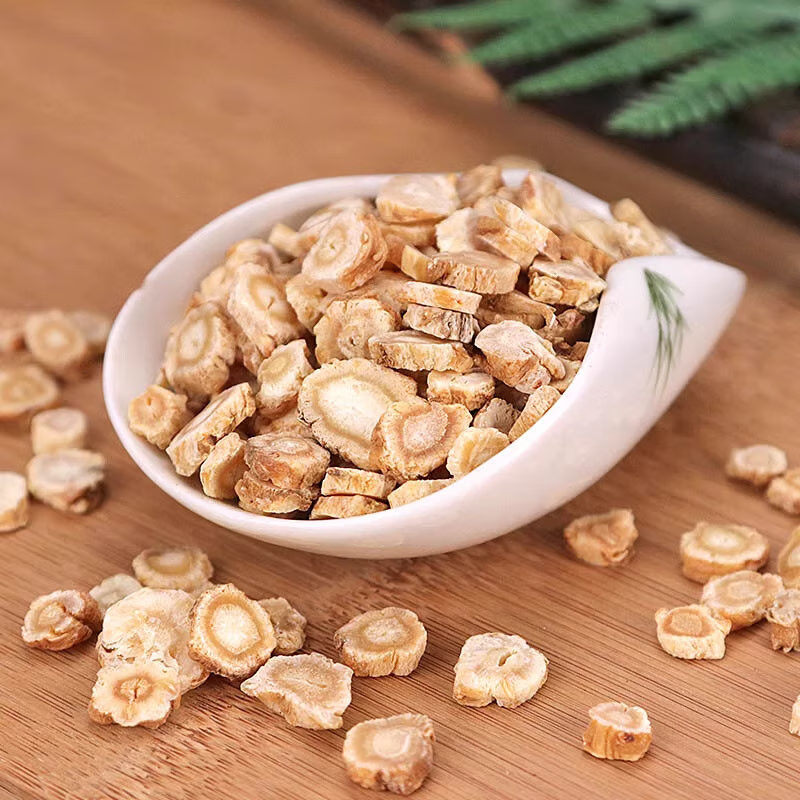
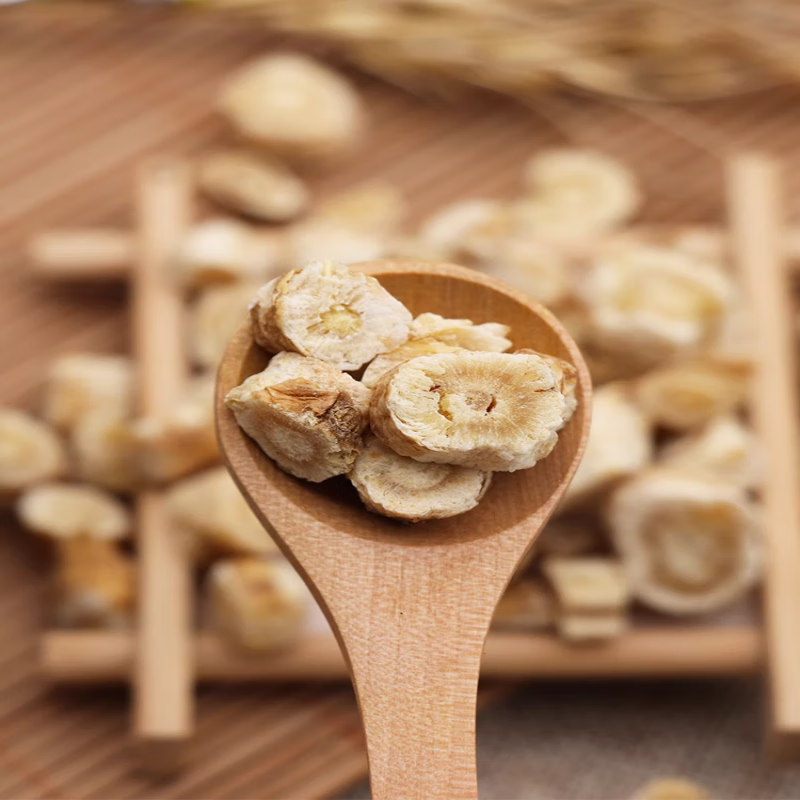
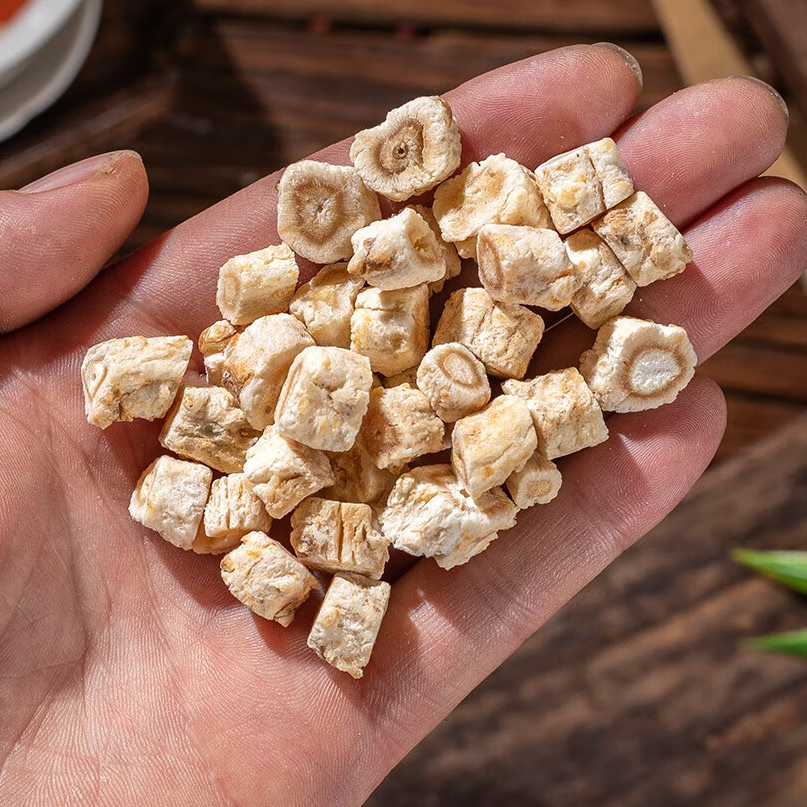
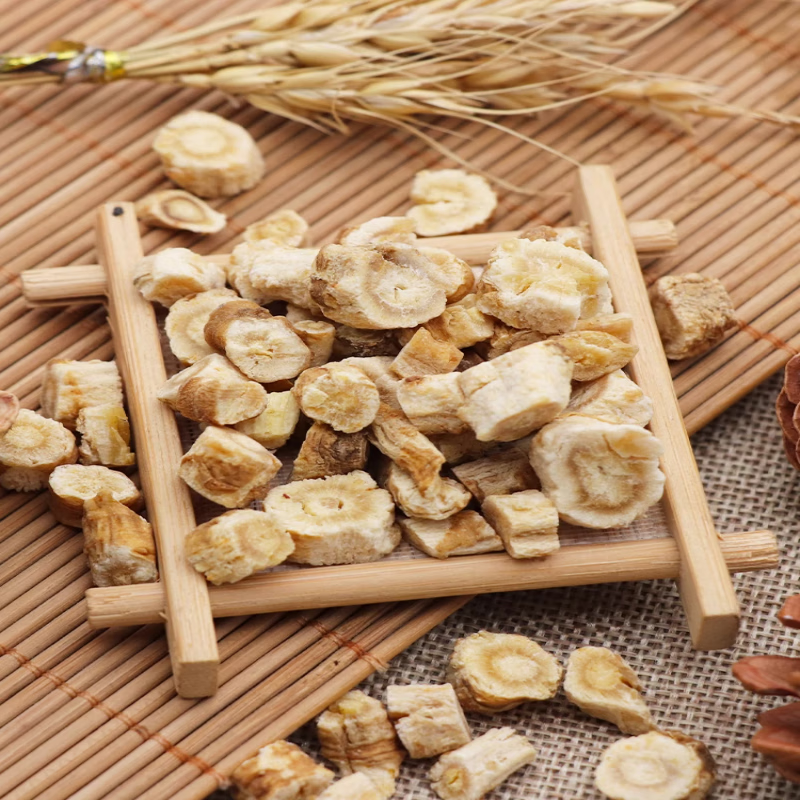
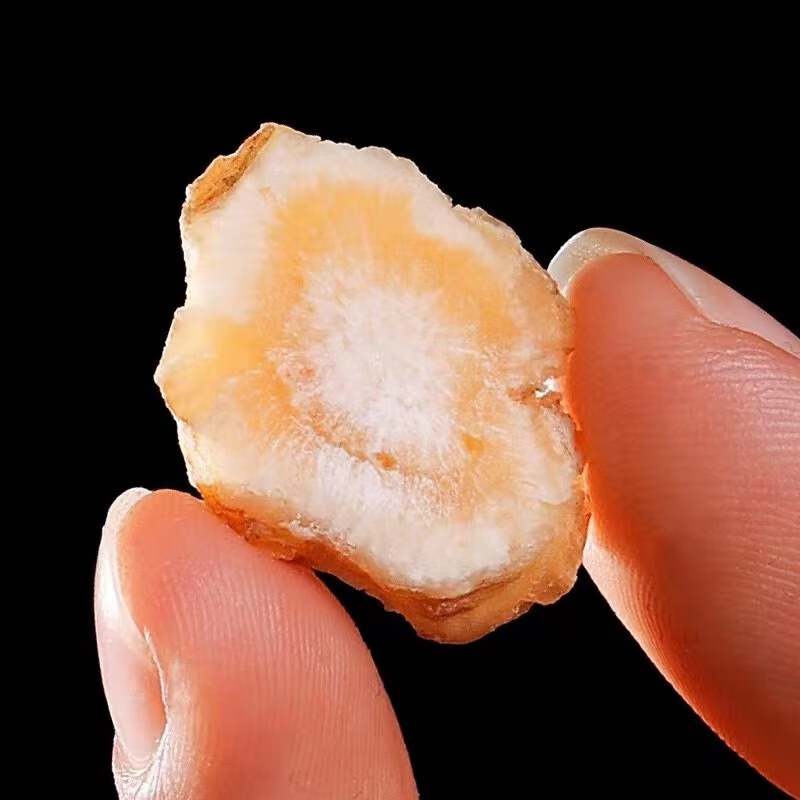
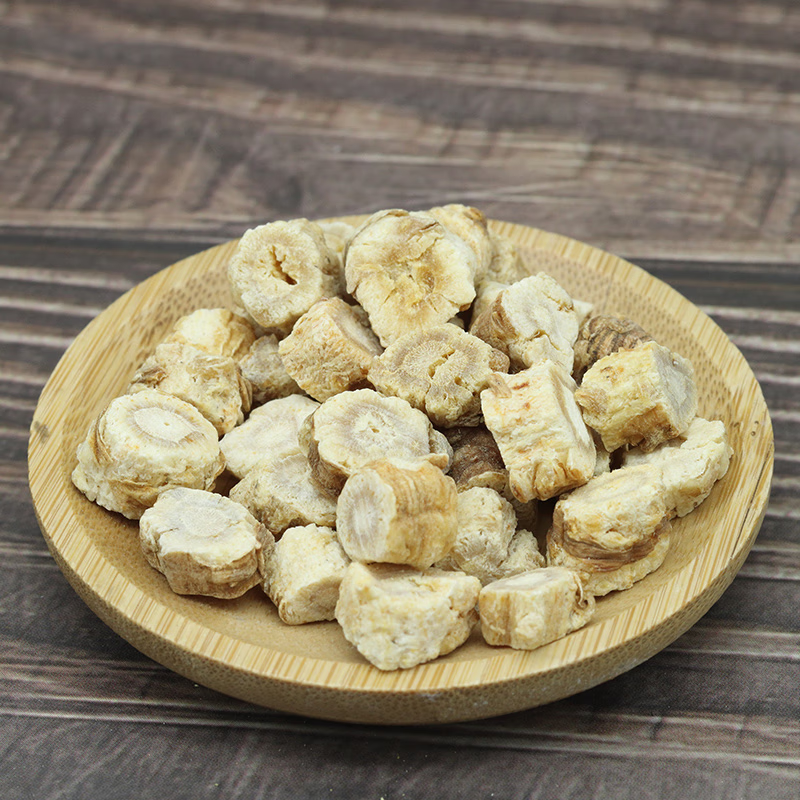
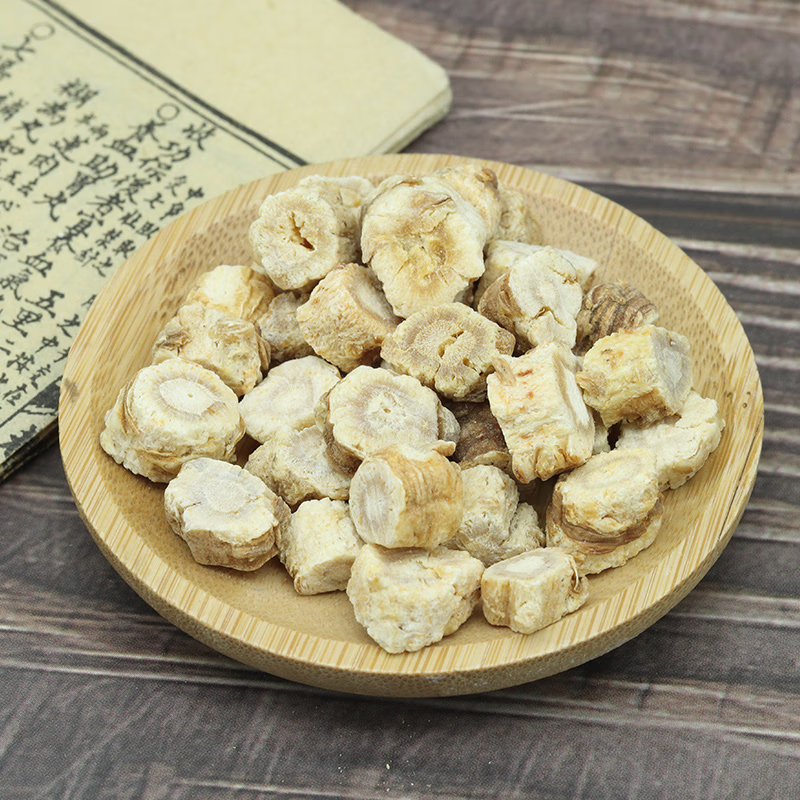

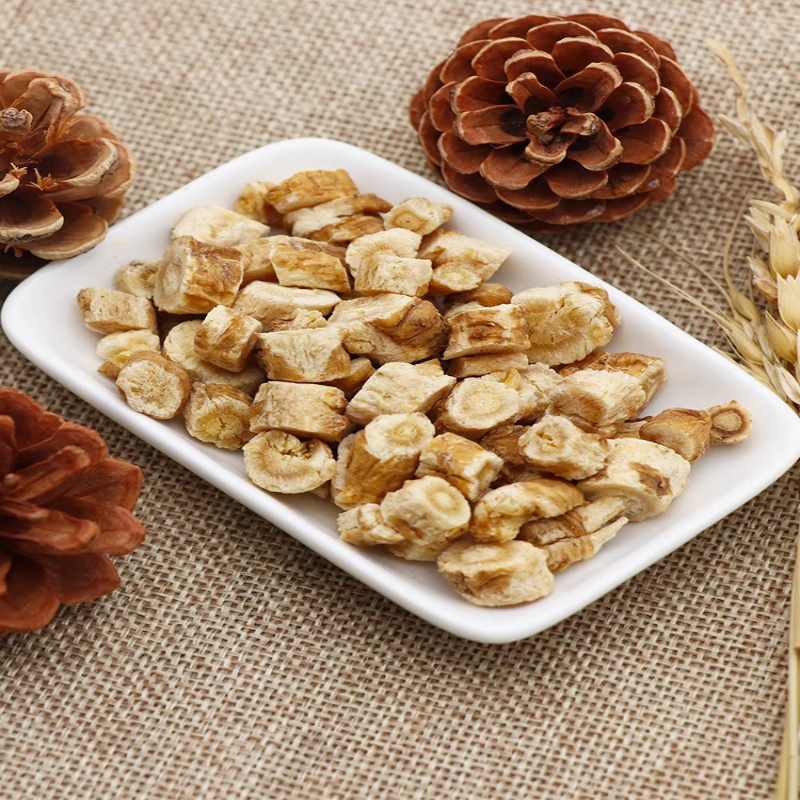
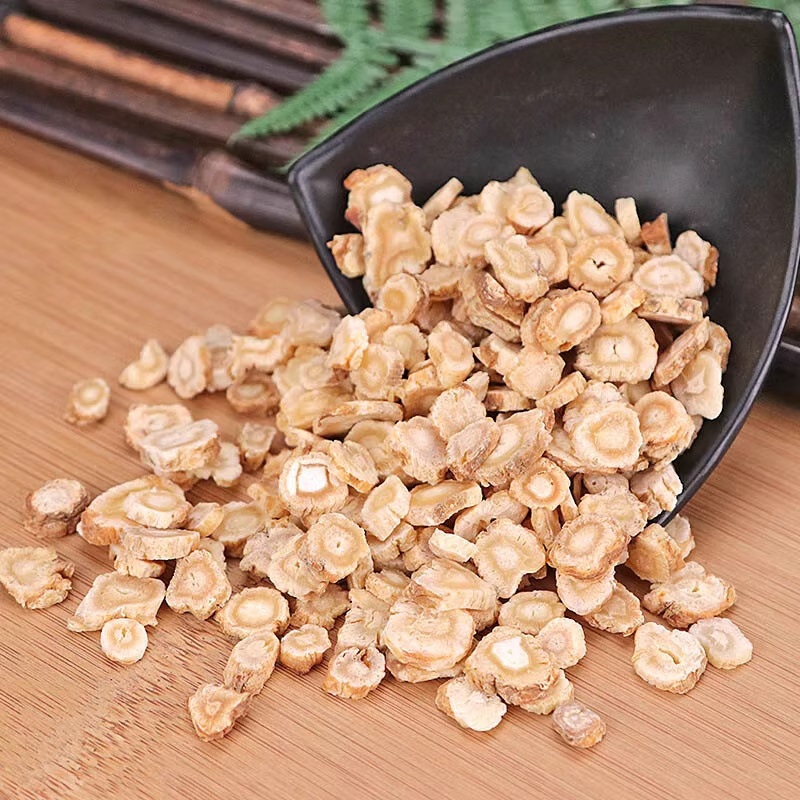
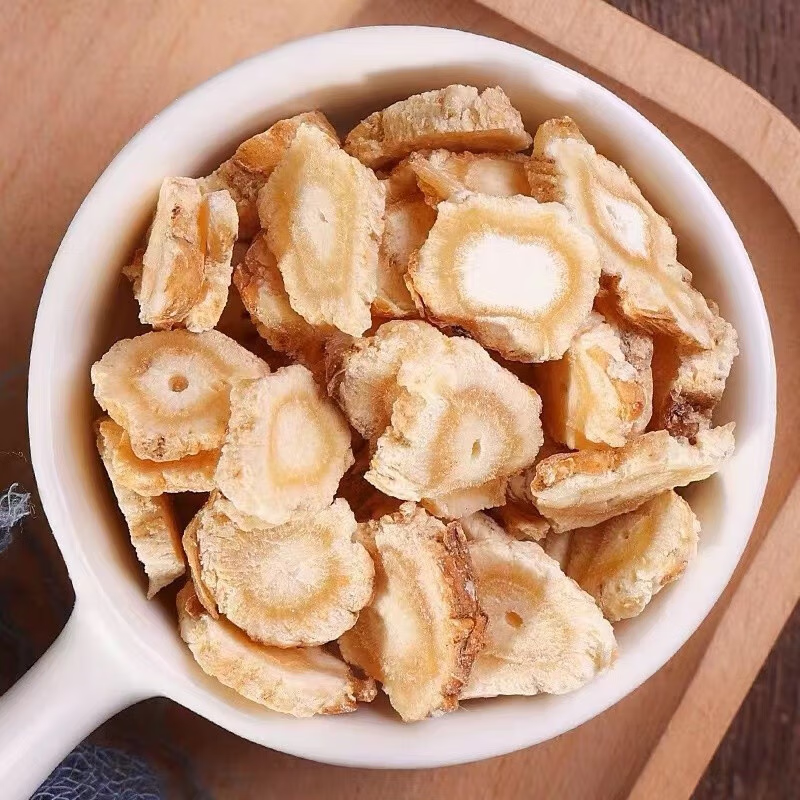

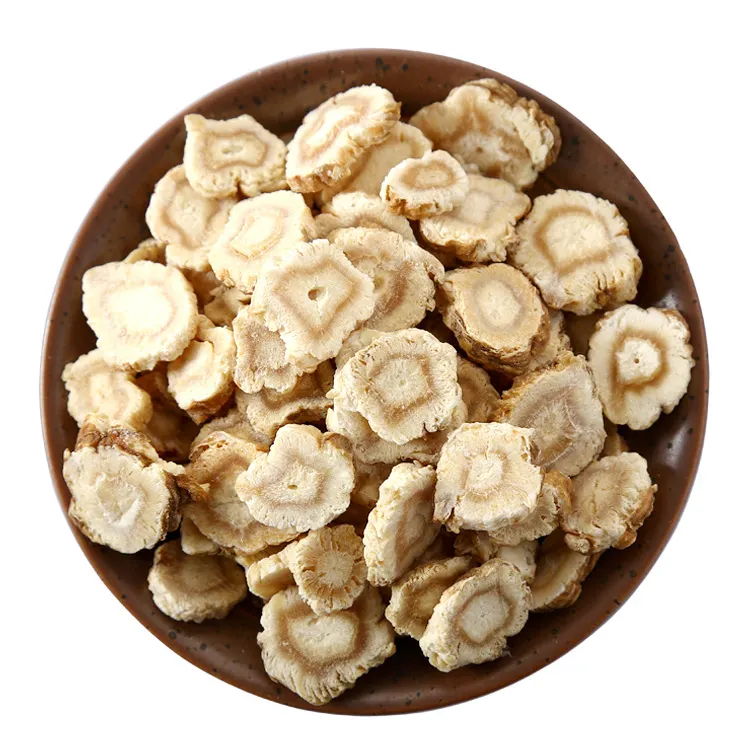
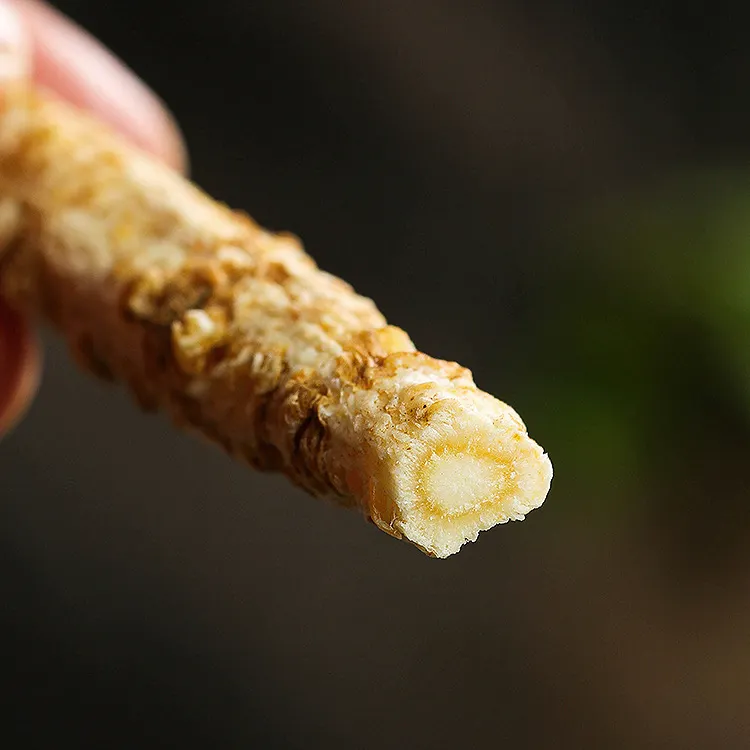

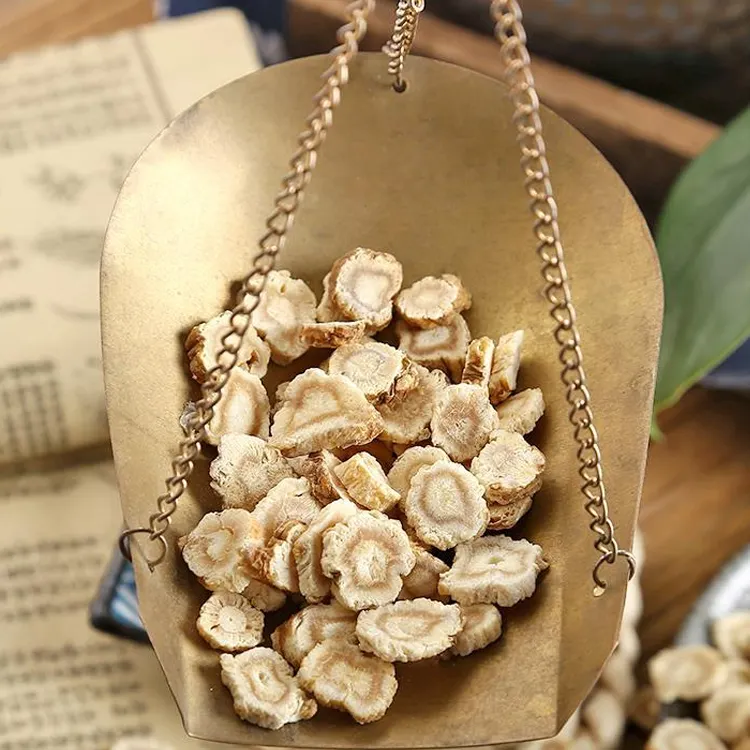
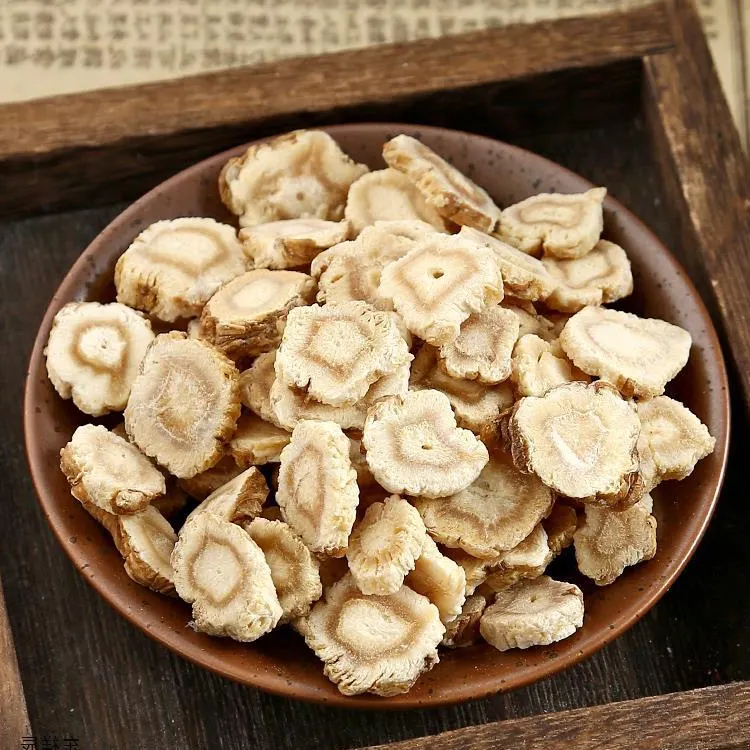
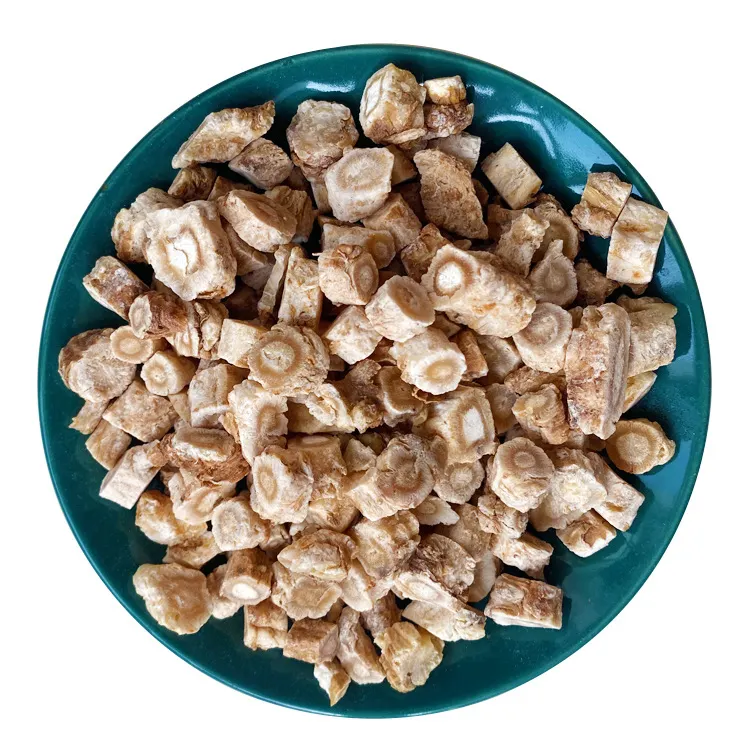

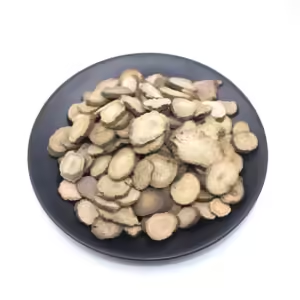
Recensies
Er zijn nog geen beoordelingen.